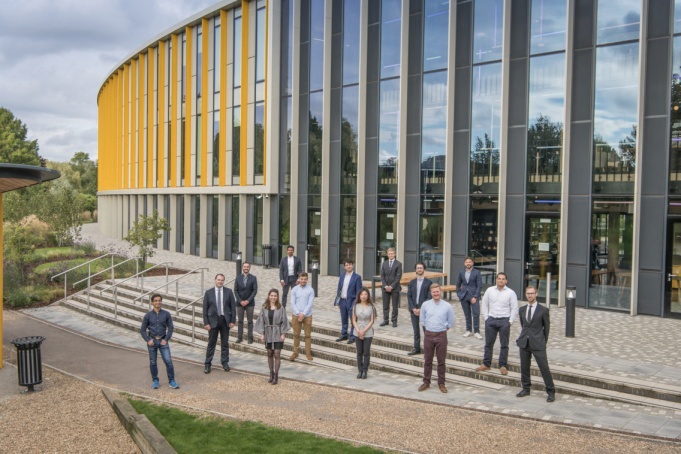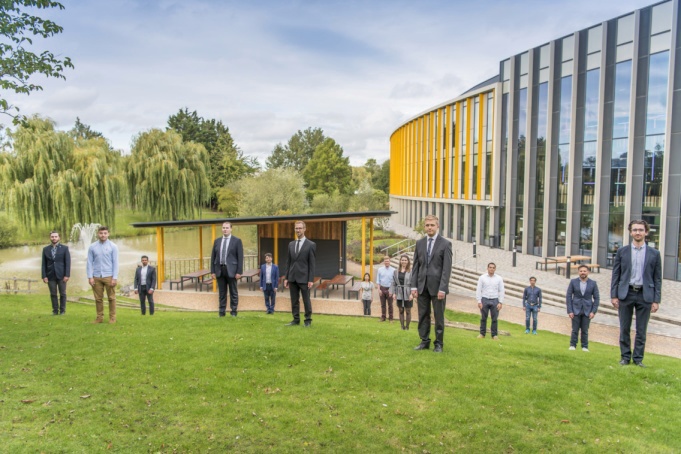

EnterpriseTECH 2018
Summary
- Three days of intensive entrepreneurial program
- Awarded fully-funded position
- Mentorship by Tom Simmons (CEO of Supplant) and Dr Mark Kotter (Founder of bitbio)
- Went to Y Combinator to pitch business
- Business continued by Yudi Ding (CEO of Hide Biotech) seed at EF
Bioleather
In 2018, the global leather wholesale market was valued at $250bn, production is energy intensive, highly polluting, and millions of cows are slaughtered. Synthetic leathers are gaining traction in this market and are forecasted to be worth $85bn by 2025, yet they are made from plastics that do not have an authentic feel and raise further environmental concerns. Bioleather is an eco-friendly alternative that maintains an authentic feel without harming animals and is made by stacking layers of collagen producing cells into layers.
However, producing collagen for bioleather at scale is an expensive and slow process preventing commercialisation. OPTi-OX technology enables rapid production of homogeneous cells that produce collagen more efficiently leading to 350% faster growth which subsequently reduces the cost of bioleather making it economically viable. Fashion brands are under increasing pressure from policy makers, consumers, and investors to be more sustainable and ethical. Here we present a commercial feasibility report on the application of OPTi-OX technology to the emerging bioleather market.
EnterpriseTECH STAR 2020
Summary
- Ten week intensive entrepreneurial program
- Awarded fully-funded position
- Strong focus on lean startup approach
- Mentorship from a vast pool of entrepreneurs, business leaders, and scientists
Focal
Hundreds of thousands of people undergo traumatic brain injury (TBI) every year. Each injury is unique, and rehabilitation programs vary depending on the rehab center. The quality and intensity of the rehabilitation program largely determine the long-term clinical outcome of the patient. The process is emotionally challenging for patients and their families, and it is difficult to track patient progress. Rehabilitation programs can cost upwards of USD 20,000 per patient-year depending on severity costing the U.S. alone around USD 2 billion per year.
At focal, our vision is to monitor the rehabilitation process using non-invasive optical devices and take a data-driven approach to customize customized rehabilitation programs to promote TBI recovery. Realizing our vision will improve the quality of life post-TBI, reduce TBI rehabilitation costs, reduce inpatient stay, and, most importantly, enable patients to get back to their everyday lives.
Project information
- Category: Cambridge Judge Business School
- Location: University of Cambridge
- Project date: October 2018 - March 2019 & Sep 2020 - Nov 2020
- Project URL: EnterpriseTECH & STAR